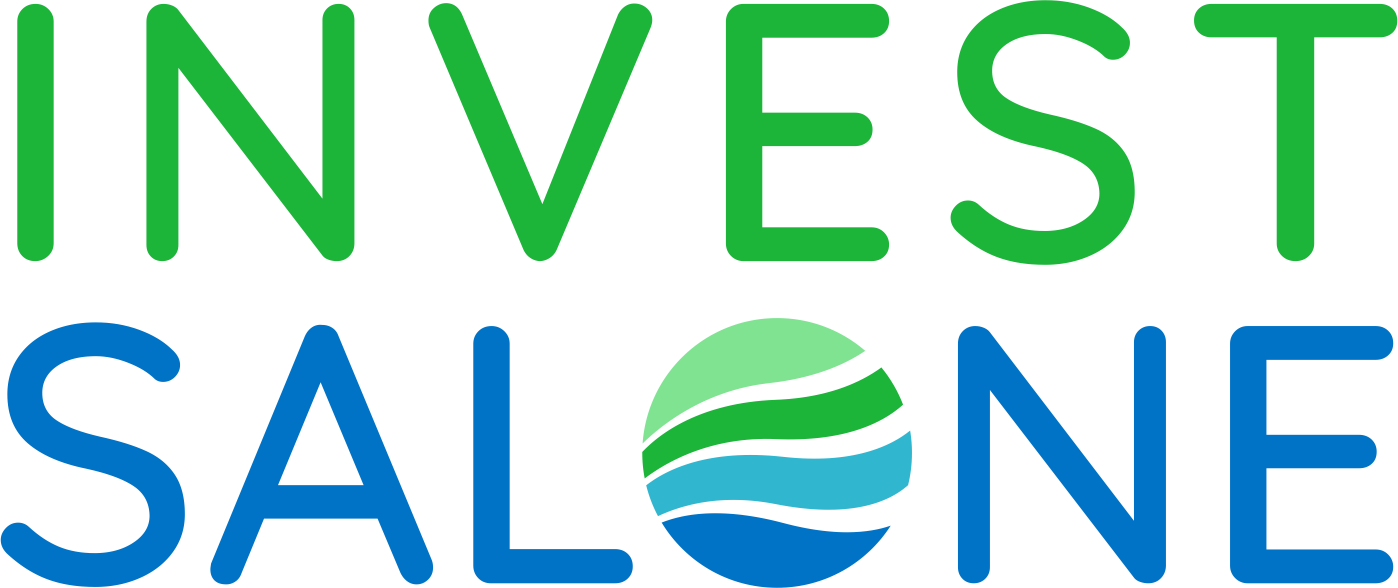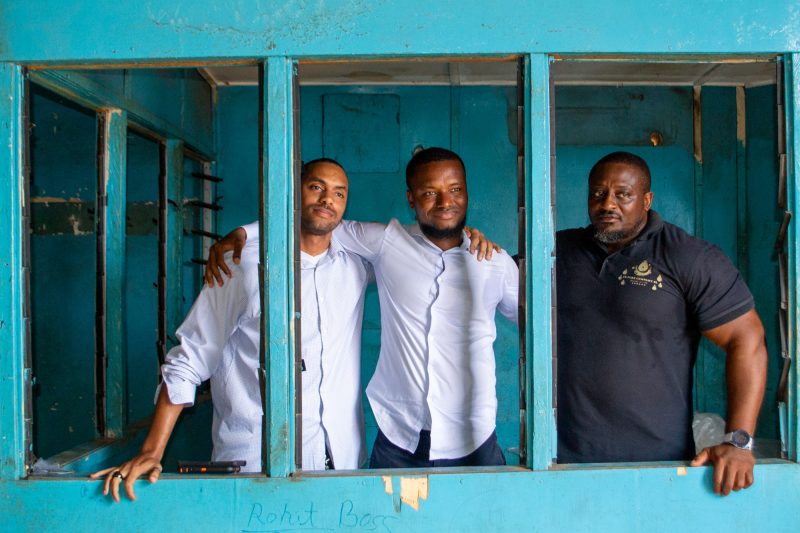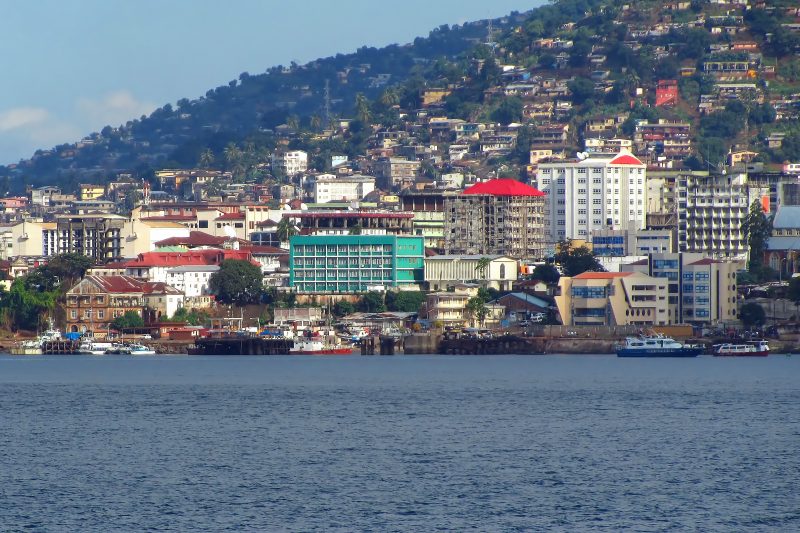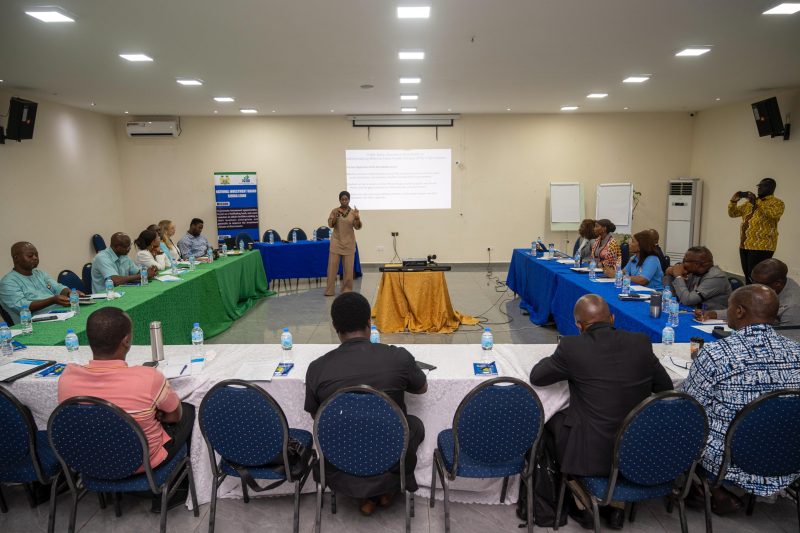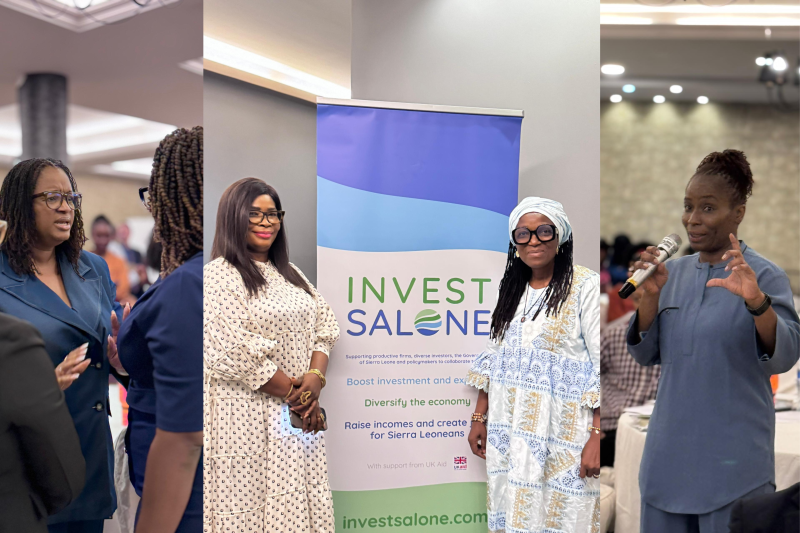Seventy stakeholders from Sierra Leone’s business ecosystem took part in a public–private dialogue (PPD) on Thursday 15 September to discuss green investment. They overwhelmingly supported the need for a sustainable finance roadmap to help integrate sustainability into Sierra Leone’s financial system and guide Sierra Leone’s response to major environmental, social and governance (ESG) challenges.
The PPD was facilitated by Invest Salone, a UK-government funded private sector development initiative, and reaffirmed commitments to mainstreaming ESG standards made by Sierra Leone’s banking sector last year.
In his introduction, Invest Salone consultant and former commercial banker, Michael Coates described sustainable finance as ‘just finance – but with a long-term rather than short-term view’.
“Sustainable finance is about increasingly nudging capital towards sustainable business and operating models, as well as protecting Sierra Leone from the impact of climate change through adaptation finance,” he said. “It is also about protecting the stability of the financial system by embedding climate risk management into prudential regulation. Everything you already know about finance is still completely relevant, but we need to overlay that with a sustainability lens.
“All this has serious implications for Sierra Leone’s financial system,” he continued. “Large volumes of finance, particularly in the form of development finance or impact investment in Sierra Leone’s case, will increasingly be made available for banks to finance businesses and projects which adopt sustainable business and operating models.”
Also speaking were Mr Bockarie Kalokoh, Deputy Minister 2 of Finance and Dr Ibrahim Stevens, the First Deputy Bank Governor.
Deputy Minister Kalokoh said that protecting Sierra Leone’s economy from the effects of climate change would require a significant shift of investment into sustainable projects. He welcomed the discussion as an opportunity to see how the private and public sectors could work together to leverage sustainable finance to bridge domestic resource mobilisation challenges saying: “Supporting climate resilience and a just energy transition in Sierra Leone is key because climate change is a growing threat to lives and livelihoods in Sierra Leone and other parts of the world.”
He told participants that sustainable finance would be among the key themes in the forthcoming Finance Act. He also highlighted the importance of building industry capacity and tailoring interventions to provide effective financial protection, particularly to vulnerable segments.
First Deputy Bank Governor Dr Ibrahim Stevens said that an increasing number of climate related projects were being submitted to the Bank of Sierra Leone for funding: “Unsurprisingly given Sierra Leone’s climate constraints, we have a growing number of related projects on our desk. Freetown’s annual rainfall is already among the highest in the world and continuing environmental degradation is contributing to more severe climate change. Governments around the world are introducing ESG-related reporting requirements for financial institutions and we are conscious that we are behind the curve, but we are ready to engage and facilitate the transition to a more sustainable economy.”
Participants, including businesses, development partners and representatives from the commercial banking sector went on to discuss:
- Developing sustainable financing principles for financial institutions
- The feasibility of a Green Credit Guarantee Scheme to support lending to businesses
- How businesses could better liaise and interface with ministries, departments and agencies through units such as the newly formed private sector unit of the Ministry of Finance and the Environment Protection Agency’s Green Climate Fund (GCF) desk
- A national development finance institution with sustainable finance at its core, which could focus on market opportunities with mitigation and adaptation potential.
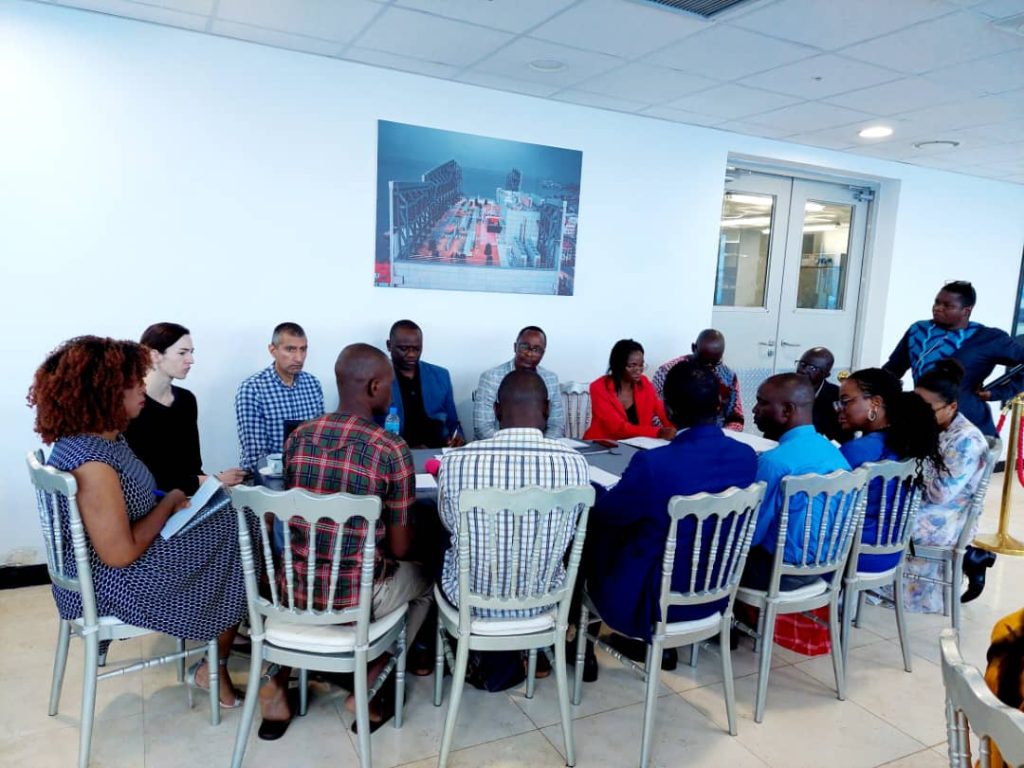
Agreed next steps include developing a sustainable finance roadmap under the leadership of the Ministry of Finance and the Bank of Sierra Leone, which will help prioritise actions, facilitate stakeholder mapping and engagement, and identify how access to sustainable finance can support financial inclusion in Sierra Leone.
